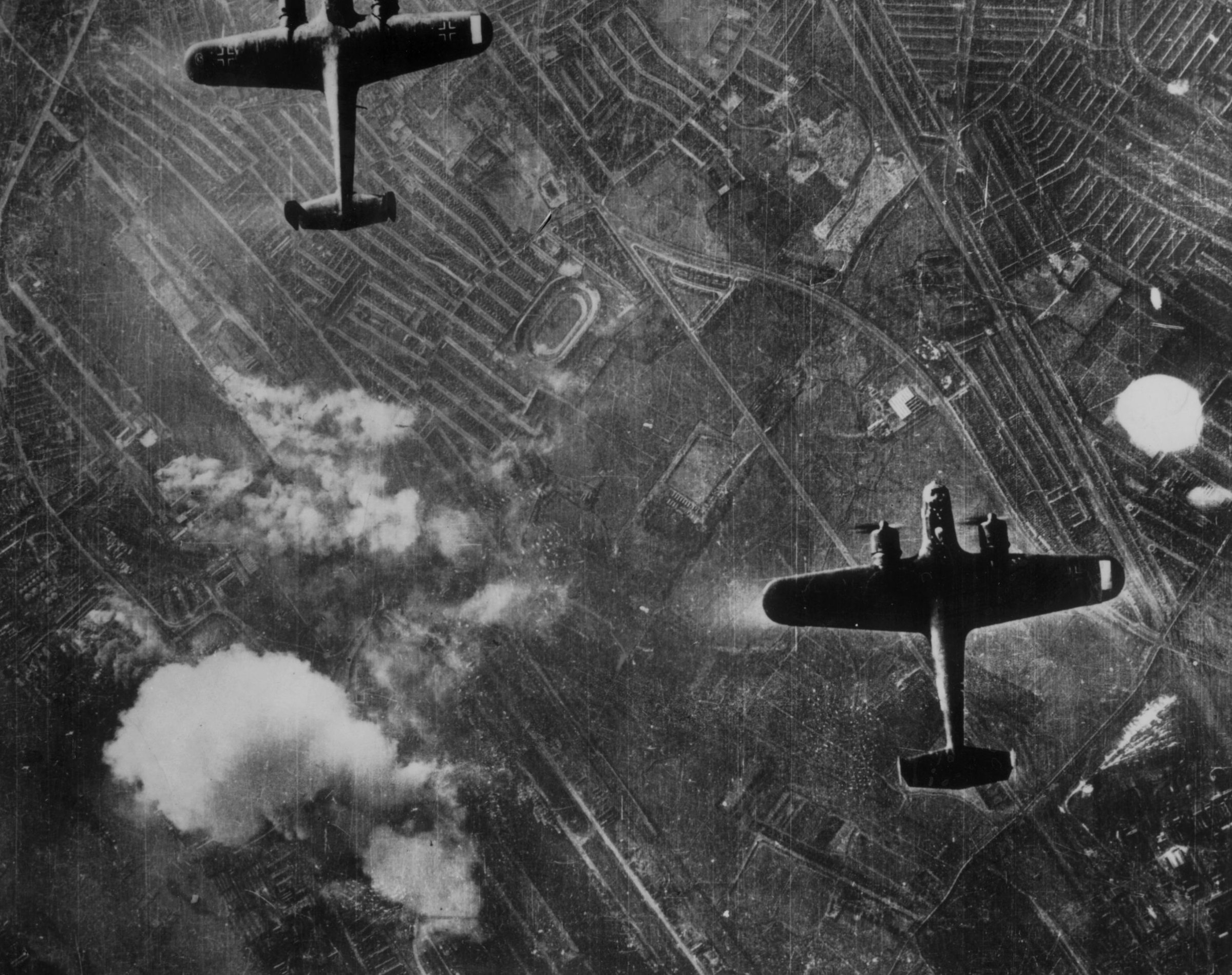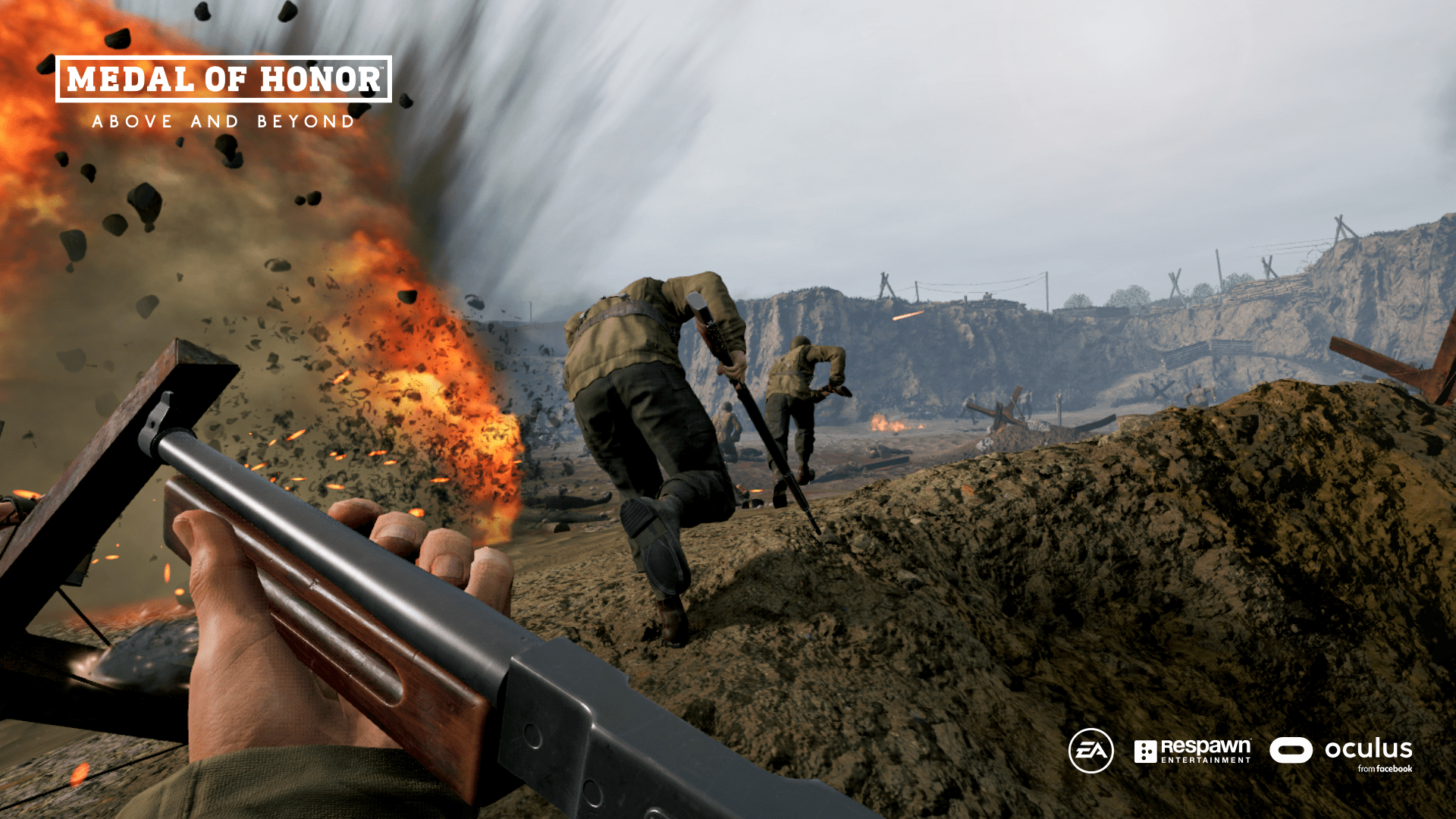
The 75th anniversary of Japan formally surrendering to the U.S. aboard the battleship USS Missouri on Sept. 2, 1945, arrives at a moment when the question of how the war is remembered feels more necessary than ever. Veterans’ stories, books, movies and TV shows have kept memories of the war alive for the last 75 years, but how will those stories be told when there are fewer people around who lived through those era-defining years?
Recently, some people in younger generations have turned to a perhaps surprising source for World War II stories: video games. Games have become more realistic not only in terms of technological advancements, but also in terms of featuring real people and, at least in terms of blockbuster games like Medal of Honor and Call of Duty, getting input from real experts on military history.
For example, the upcoming virtual-reality game Medal of Honor: Above and Beyond will feature documentary shorts, and creators interviewed WWII veterans about their wartime experiences to inform the set, which includes missions across Europe and in Tunisia. Inside their headsets, players will walk in the boots of a combat engineer recruited for espionage work by the Office of Strategic Services, which was a real U.S. intelligence agency during World War II and a precursor to the CIA. On Thursday, at the virtual Gamescom convention, Respawn Entertainment unveiled a new trailer for the game, which will be released this holiday season.

One of the most popular WWII video game franchises, Medal of Honor began with educational aspirations. As Peter Hirschmann, who worked on the original 1999 game and is the game director for Medal of Honor: Above and Beyond, recalled to The Hollywood Reporter earlier this year, Saving Private Ryan director Steven Spielberg knew that his R-rated movie wasn’t for kids but expressed a wish that there were more popular culture available to spark interest in the war’s history among younger viewers. “He then had the foresight to see that one of the dominant forms of entertainment emerging was games, so he laid it out: ‘I want to make a WWII game that kids can play to introduce them to these stories,'” Hirschmann said. “He was very specific about wanting to call it Medal of Honor, because that award represents going above and beyond the call of duty.”
So far, given that the U.S. is one of the biggest video game markets in the world, the U.S. perspective on the war dominates in video games too; as is the case with World War II movies, most are set in Western Europe. In fact, in 2013, Russian players blasted Company of Heroes 2 for repeating American stereotypes of the Eastern Front.
Ultimately, history games can spark interest in learning more, says Bob Whitaker, a professor of History at Collin College and host of the podcast History Respawned, where historians talk about history-themed video games. His own passion for this subject dates back to playing Civilization II in the mid-1990s, which inspired him to create a “mod” (a player-made tweak) re-creating his grandfather’s experience in World War II as a pilot who flew missions over the Himalayas.
And he wasn’t the only one. “Recently with the centenary of the end of World War I, I can’t tell you how many conversations I had with students and other scholars about how games they played like Battlefield 1 or Valiant Hearts: The Great War portrayed the First World War,” he says. “Going forward you are going to see the same sort of conversations about Second World War games.”
In the next 75 years, he hopes more historians will see the value of games as Spielberg did. “I look at games as being in a similar positions as motion pictures were in the beginning of the 20th century. Games will be taken much more seriously in the 21st century; they’re going to carry much more historical weight,” says Whitaker. “Games are going to be a part of the ways in which we remember the past going forward. Historians have to offer a helping hand in case players want to know more.”
Get your history fix in one place: sign up for the weekly TIME History newsletter
Below, Whitaker picks five other titles that show how games are telling the story of World War II:
Through the Darkest of Times (2019)
“In Through the Darkest of Times, developed by [Berlin-based] Paintbucket Games, you play as a German resistance group living in Berlin during the Second World War. The White Rose was a group of German students who attempted to resist the Nazi regime. Students were executed, and the game is trying to tell that story to a certain extent. Games are typically about player empowerment, living out a power fantasy. Your missions don’t often involve violence, but instead the weapons of the weak: sabotage, graffiti, and spreading leaflets. The game exposes players to a history most people don’t know while the game’s mechanics illustrate for the player how difficult resistance to Nazism often was for ordinary people.”
Attentat 1942 (2017)
“Developed by Charles University in Prague, it’s about the Nazi occupation of Czechoslovakia, featuring survivors. It only takes about two to three hours to finish so it’s the type of fun, cheap game you could play in an afternoon. A number of historians helped to develop the game, so stands out for its fidelity to the history of the conflict. It marries compelling game mechanics with authentic history.”
Call of Duty: WWII (2017)
“Most Second World War games don’t mention the major tragedies or anything related to the Holocaust.
While Call of Duty: WWII does fall into clichés and traps with WWII video games where you’re getting a lot of bombast, blockbuster set pieces, at the same time, the developers at Activision are doing something rather brave, which is bringing up the Holocaust in a major AAA video title. It culminates in a mission where you are liberating a concentration camp. There is no violence. You’re solemnly going through the remains at the concentration camp.”
Wolfenstein: The New Order (2014)
“Wolfenstein: The New Order is a pulpy, grindhouse sci-fi version of World War II, set in the early 1960s when the Nazis have won the war. Your player, ‘B.J.’ Blazkowicz, goes into a prison camp, and in course of the mission, you see Jews, people of color, other enemy groups being treated poorly in these camps. You see gas chambers, crematoriums, bodies are being burned.
We’re moving into an era where survivors of the Holocaust are passing away, and you’ve got to rely on secondary sources. As we get further away from the Second World War, it’s really important to remind players of the crimes the Nazis committed.”
Hearts of Iron IV (2016)
“Hearts of Iron IV attempts to replicate as accurately as possible the starting conditions for various world powers in the late 1930s, giving you the opportunity to either replicate history or pursue some sort of counterfactual scenario in which you are attempting to change the outcome of the war. People use that to create more historically-realistic scenarios, but it’s also controversial because it’s popular among groups of ‘modders’ who revel in racist and ethnonationalist counterfactual histories. The base game is solid, but some of the player-created content can be very disturbing. Games are not like a book or movie. As the audience, you’re not simply receiving the game. You can add onto the game and manipulate it.”
More Must-Reads from TIME
- Cybersecurity Experts Are Sounding the Alarm on DOGE
- Meet the 2025 Women of the Year
- The Harsh Truth About Disability Inclusion
- Why Do More Young Adults Have Cancer?
- Colman Domingo Leads With Radical Love
- How to Get Better at Doing Things Alone
- Michelle Zauner Stares Down the Darkness
Write to Olivia B. Waxman at olivia.waxman@time.com



